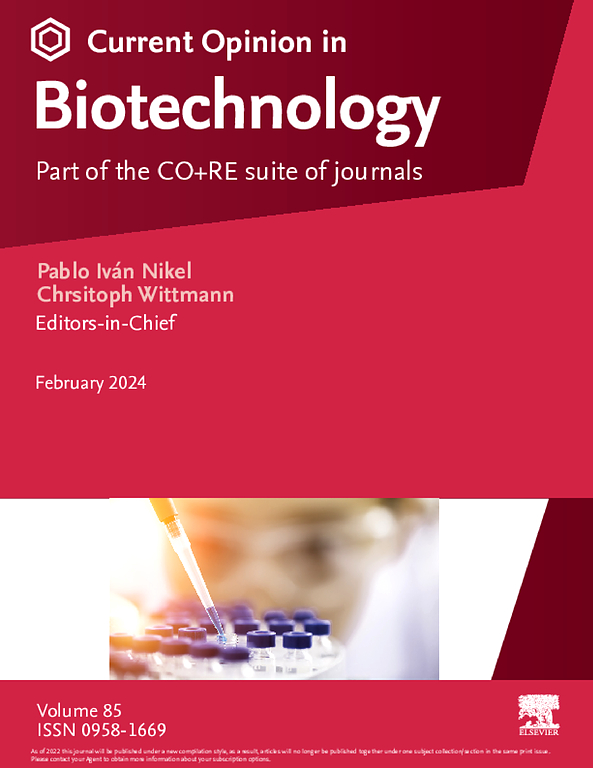Synergizing gene editing and cellular agriculture for a sustainable and healthy food future
IF 7
2区 工程技术
Q1 BIOCHEMICAL RESEARCH METHODS
引用次数: 0
Abstract
The intersection of gene editing and cellular agriculture is transforming food production by offering sustainable, ethical alternatives to conventional agriculture. Cellular agriculture uses tissue engineering and fermentation technologies to produce animal-free food, whereas gene editing tools like CRISPR-Cas9 optimize cellular efficiency, nutritional value, and sustainability. While some researchers emphasize the environmental and food security benefits, others raise concerns about high costs, regulatory challenges, and consumer acceptance. This paper critically examines existing literature, compares breakthroughs and controversies, and provides an expert perspective on the challenges and opportunities in gene-edited cellular agriculture. By tackling key scientific, economic, regulatory, and ethical issues, this article presents a roadmap for responsibly advancing these technologies and integrating them into global food systems. To our knowledge, this is the first work to explore how gene editing and cellular agriculture can be synergized to advance sustainability, food security, and global health.
协同基因编辑和细胞农业,创造可持续和健康的食品未来
基因编辑和细胞农业的交叉正在通过为传统农业提供可持续的、合乎道德的替代方案来改变粮食生产。细胞农业利用组织工程和发酵技术生产无动物食品,而CRISPR-Cas9等基因编辑工具则优化细胞效率、营养价值和可持续性。虽然一些研究人员强调了环境和食品安全方面的好处,但也有人提出了对高成本、监管挑战和消费者接受度的担忧。本文批判性地审查了现有文献,比较了突破和争议,并提供了一个专家的观点,在基因编辑细胞农业的挑战和机遇。通过解决关键的科学、经济、监管和伦理问题,本文提出了负责任地推进这些技术并将其融入全球粮食系统的路线图。据我们所知,这是首次探索基因编辑和细胞农业如何协同推进可持续性、粮食安全和全球健康的工作。
本文章由计算机程序翻译,如有差异,请以英文原文为准。
求助全文
约1分钟内获得全文
求助全文
来源期刊

Current opinion in biotechnology
工程技术-生化研究方法
CiteScore
16.20
自引率
2.60%
发文量
226
审稿时长
4-8 weeks
期刊介绍:
Current Opinion in Biotechnology (COBIOT) is renowned for publishing authoritative, comprehensive, and systematic reviews. By offering clear and readable syntheses of current advances in biotechnology, COBIOT assists specialists in staying updated on the latest developments in the field. Expert authors annotate the most noteworthy papers from the vast array of information available today, providing readers with valuable insights and saving them time.
As part of the Current Opinion and Research (CO+RE) suite of journals, COBIOT is accompanied by the open-access primary research journal, Current Research in Biotechnology (CRBIOT). Leveraging the editorial excellence, high impact, and global reach of the Current Opinion legacy, CO+RE journals ensure they are widely read resources integral to scientists' workflows.
COBIOT is organized into themed sections, each reviewed once a year. These themes cover various areas of biotechnology, including analytical biotechnology, plant biotechnology, food biotechnology, energy biotechnology, environmental biotechnology, systems biology, nanobiotechnology, tissue, cell, and pathway engineering, chemical biotechnology, and pharmaceutical biotechnology.
 求助内容:
求助内容: 应助结果提醒方式:
应助结果提醒方式:


